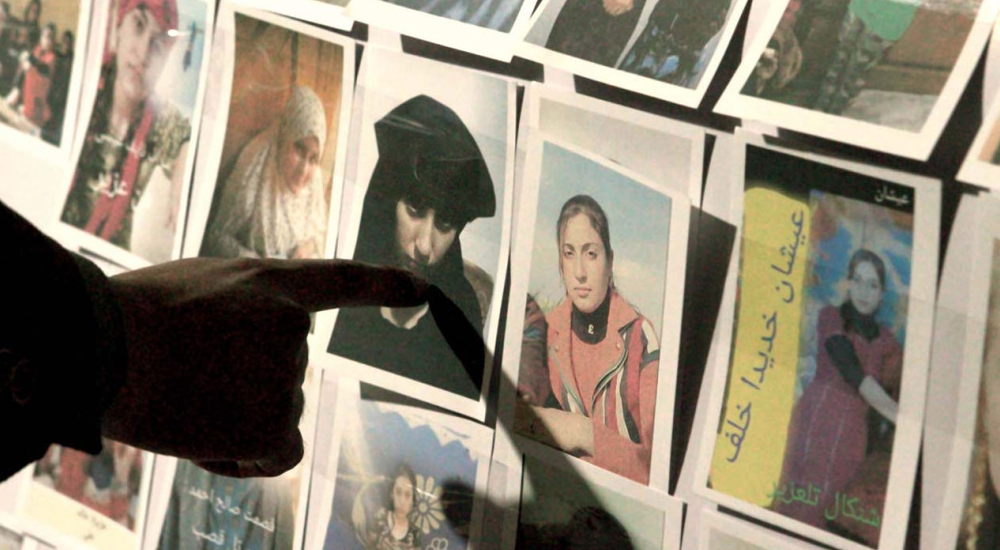For many of us, war in the Middle East has been an omnipresent part of American lives, in far away lands full of sand, religious extremism, and guns. What we don’t see, and in some ways can’t imagine, are how others live in a war zone every day.
Unless you’ve been living under a rock, you probably know that Syria has been a war-torn country for ten years now. What began as an uprising in 2011 as part of the Arab Spring became a complicated, multi-sided civil war that saw hundreds of thousands of civilians killed, injured, or left homeless. Most notably, ISIS (aka ISIL aka Daesh) joined the fray and, at one point, was taking over the country quickly and ruthlessly. With the help of the United States, they were forced to retreat and lost most of their territory by 2017.
Sabaya shows us what happens after the fall of Daesh in Syria through an intimate, tension-filled documentary that viscerally places the viewer in the shoes of the few that want to do something good in all this. It’s an incredibly moving and harrowing film with such honesty and access that you sometimes doubt if it can be real at all.
The film begins in a van driving down a dirt road. The radio announces that Daesh has been forced out of Syria. Already you can tell tensions are high. The driver is Mahmud. He works for the Yazidian Home Center attempting to find Yazidi girls and women kidnapped by Daesh and return them to their families. The niqab-clad woman in the car, we learn, is an “infiltrator”, working for the Yazidian Home Center and about to be dropped into the Al-Hol camp, a camp of 73,000 Daesh supporters, to try and find some of these missing Yazidi women. It’s a dangerous and high stakes operation and the woman even smuggles a camera in her niqab, allowing us to get a glimpse of the camp and its inhabitants.
The tension and intensity never really descends from there. You don’t necessarily see that reflected in Mahmud or his family or other members of the organization. While the situation may be terrifying for the viewer, they’re used to living in such uncertainty and danger, calmly hiding a gun in his waistband every morning. Mahmud has an almost John Wick-like quality to him, tranquil and resolute, utterly focused on his mission to rescue fellow Yazidis, a Kurdish ethnic minority, from their lives of sex slavery, women known to Daesh men as sabayas.
The filming style is simple and effective, focused on capturing moments, facial expressions and conversations with as little interruption as possible. The noticeable yellow tint to the film feels appropriate to the desolate setting, lending it a hint of stylization. As Mahmud talks on the phone with families pleading for him to find their daughters, normal life continues around him. The filmmakers make sure to capture his wife and mother cleaning, cooking, restarting the generator and looking after goats and sheep as his son plays in the dust bowl of their yard.
Although the documentary’s subjects appear calm, the threat of danger is palpable at every moment, especially as see some girls rescued and see them slowly start to process the trauma they’ve endured. “Please don’t let them take me again,” one pleads, “They were always beating me.” Mahmud’s mother Zahra burns their all-black niqabs in digust, telling the bag of burning clothes, “You made our girls your slaves.”
The filmmakers could have easily focused on the successful rescues and reunions with their families, but in keeping the situation as realistic as possible, they make sure to show Mahmud and his coworkers surrounded by photos upon photos of missing women. The Al-Hol camp comes under attack from outside Daesh supporters, gun fights are a given. Although they know they’re making a difference, they also realize it is a drop in the bucket.
Sabaya is a stunning, gripping documentary that places its audience in the middle of a war zone. It expertly conveys that war is messy, truces are tenuous, and the ones that suffer the most are usually innocent. It’s a manifestation of that famous Mr. Rogers quote: “Look for the helpers. You will always find people who are helping.” It’s a must watch.

